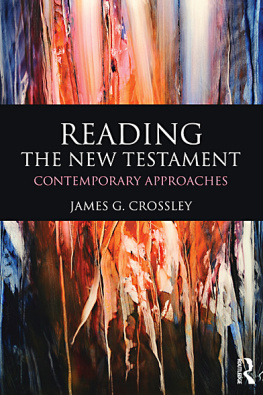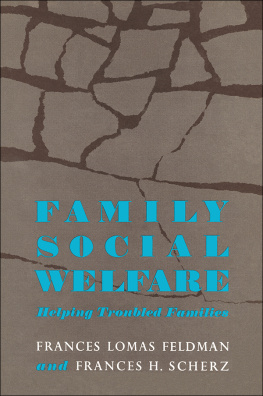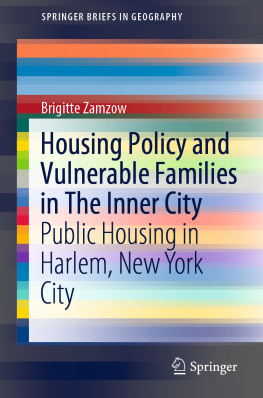First published in Great Britain in 2018 by
Policy Press University of Bristol 1-9 Old Park Hill Bristol BS2 8BB UK Tel +44 (0)117 954 5940 e-mail
North American office: Policy Press c/o The University of Chicago Press 1427 East 60th Street Chicago, IL 60637, USA t: +1 773 702 7700 f: +1 773-702-9756 e:
Policy Press 2018
British Library Cataloguing in Publication Data
A catalogue record for this book is available from the British Library
Library of Congress Cataloging-in-Publication Data
A catalog record for this book has been requested
ISBN 978-1-4473-3474-3 paperback
ISBN 978-1-4473-3472-9 hardcover
ISBN 978-1-4473-3475-0 ePub
ISBN 978-1-4473-3476-7 Mobi
ISBN 978-1-4473-3473-6 ePdf
The right of Stephen Crossley to be identified as author of this work has been asserted by him in accordance with the Copyright, Designs and Patents Act 1988.
All rights reserved: no part of this publication may be reproduced, stored in a retrieval system, or transmitted in any form or by any means, electronic, mechanical, photocopying, recording, or otherwise without the prior permission of Policy Press.
The statements and opinions contained within this publication are solely those of the author and not of the University of Bristol or Policy Press. The University of Bristol and Policy Press disclaim responsibility for any injury to persons or property resulting from any material published in this publication.
Policy Press works to counter discrimination on grounds of gender, race, disability, age and sexuality.
Cover design by Liron Gilenberg
Front cover image: Getty
Readers Guide
This book has been optimised for PDA.
Tables may have been presented to accommodate this devices limitations.
Image presentation is limited by this devices limitations.
Acknowledgements
Much of the research undertaken for this book was carried out while I was studying for a PhD, in the School of Applied Social Sciences at Durham University. The PhD research was funded by an Economic and Social Research Council PhD Studentship. I would like to thank the Economic and Social Research Council (ESRC) for their support and I trust that they approve of the approach I have taken in pursuit of impact. During the four years that I was doing my PhD I received support and advice from so many people, and I hope I can thank many of them here. The list below is not exhaustive and there are many people who I have not thanked by name here, but who have provided me with support, encouragement and inspiration. I hope I can return these gifts one day.
The first person I spoke to at Durham University about applying for funding was Maggie ONeill, who provided me with immediate encouragement and support. Colleagues in the School of Applied Social Sciences (SASS) have continued and augmented that support. Kate OBrien and Ian Greener were helpful reviewers, reminding me it was only a PhD, and urging me to clarify and remember whose side I was on. Helen Charnley calmly steered me through my ethical approval process. Fiona Bonar was, and probably still is, the best Postgraduate Secretary a student could wish for. Many other colleagues in SASS, staff and students alike, provided support, encouragement and opportunities to discuss issues and explore challenges over the course of the thesis. Thank you to all of you.
I could not have wished for better PhD supervisors than Roger Smith and Lena Dominelli. I cannot speak highly enough of Roger, who has provided me with brilliant support, guidance and wisdom ever since he agreed to be my primary supervisor. I owe him a lot and when I eventually grow up, I would like to be like him. At my first meeting, Lena encouraged me to write something for a publication, and suggested reading to me that would prove pivotal in shaping my thoughts and approach to the thesis. This level of support was maintained throughout my period of study and has continued since I graduated.
Outside of Durham, I have been incredibly lucky enough to have received the support and interest of many colleagues. Viv Cree, Brid Featherstone, Liam Foster, Val Gillies, Deb Harrison, Tracey Jensen, Majella Kilkey, Linda McKie, Kate Morris, Ted Schrecker, Anna Tarrant, Jenny Thatcher, Jane Tunstill, Aniela Wenham and Rob Wilson invited me to speak at events at various stages of my studies and supported my work in many other ways as well. In addition, Anne Brunton, Danny Dorling, Brid Featherstone, Jo Finch, John Hudson, Jadwiga Leigh, David McKendrick, Sadie Parr and Charlotte Pell all encouraged or invited me to write various pieces, chapters or articles relating to troubled families. Will McMahon and his colleagues at the Centre for Crime and Justice Studies deserve special mention for encouraging me to write a report about the Troubled Families Programme for a non-academic audience and subsequently organising a conference on the programme. Kim Allen, Vic Armstrong, Matt Barnes, Michaela Benson, Sue Bond-Taylor, Jonathan Bradshaw, Jacqui Close, Ros Edwards, Kayleigh Garthwaite, David Greig, Kathryn Hollingsworth, Steph Lawler, Ruth Levitas, Rob Macdonald, John Macnicol, Lisa McKenzie, Gerry Mooney, Kirsty Morrin, Aoife Nolan, Ruth Patrick, Jonathan Portes, Tracy Shildrick, Adrian Sinfield, Tom Slater, Imogen Tyler, John Veit-Wilson and John Welshman have all provided exceptional moral and/or intellectual support in different ways. Michael Lambert, the future of history, has been immense throughout and was the ideal PhD partner. Dan Silver has been supportive in numerous ways, not least in providing the inspiration for the cover of the book. Again, I thank you all.
My family havent been bad either. I owe my mam and dad, and my sister and Paul more than could ever be articulated here, but acknowledging all your help and support during the last four years is a good place to start. Angus, Anna, George and Dominic and Ian and Maggie provided food and shelter during periods of fieldwork, and much more besides. Charlie and Sally also put me up and put up with me on my way to work. Gill Crozier was a wonderful Bourdieusian host and discussant as well. Most importantly, and aside from all the specific help during my study and work, spending time and having discussions with family and friends helped to keep personal challenges in perspective, while reinforcing the importance of some of the work I try to contribute to and be part of. Harriet, Daisy and Sam, quite simply I could not have done this without you. You are the most amazing source of inspiration and support to me. I have enjoyed, and benefitted immensely from, our many family discussions on Bourdieu. I know you have too Harriet in particular deserves thanks for not only tolerating me spending too much time with French sociologists, but also listening to me, and correcting me, when I attempted to discuss them with her. Harriet also does a good line in choosing book names and book covers.









